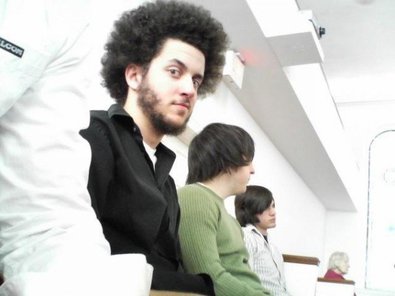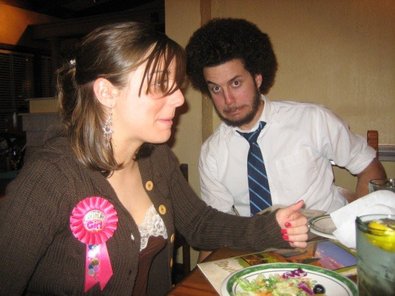Storytelling Serves as Key Part of the Grieving Process
My brother, Daniel, passed away in the summer of 2007. He was working at a Christian summer camp in Andrews. One weekend, he and a group of friends went to an Atlanta Braves game. Tragically---Daniel and his girlfriend Suzanne died in Atlanta in a car accident after the right front wheel broke off the Jeep they were riding in on the way home.
When a family member dies, people offer suggestions for the grieving process. I have noticed these suggestions often assume this process should only last about one to two years. That's not very long.
I wonder, what are some long-term steps in coping with death? Perhaps we need a six-year plan rather than just a six-month plan. Now that's it has been eight years since Daniel died, I have thought more about the long-term process of grief. My advice to anyone dealing with death is to tell stories about that person and to welcome others to share their stories about that person.

The belief in telling stories about my brother comes from two of my greatest fears: losing my memory of my brother's personality and the possibility of forgetting the details of my childhood. It's exciting to tell stories with a friend, because minor details fade away as time goes on. In many ways, our siblings are our fellow childhood historians.
When I lost my brother, with whom I was very close, I lost a fellow storyteller. Daniel knew more about my own childhood than anyone on earth other than my parents. In elementary and middle school, we shared a room together. We also got in fistfights. In high school, we shared music, and in college, we shared books. So when Daniel died, it was as if he had this book of memories in his hand that he took with him to heaven that I cannot access.
Who else knows what it was like to grow up as a Branson in Davidson County in the 1990s and the 2000s? Who else can remember the funny, the sublime, great and painful memories from the past 20 years? In the age of social networks and digital pictures, I can look at my brother's Facebook page and get a glimpse of those things, but I cannot talk to him and ask him if he remembers riding the bus home from Pilot School in 1994. When people pass away, we not only miss their personality, but also we miss out on the stories only they knew.
Personal memory is an interesting thing. Memories from long ago seem to be floating around in our brains, but it is as if they become lost in the closets of our minds. Some details from our past we would rather forget, but there are also interesting, funny and amazing things from our past that should and need to be remembered. The good news is if we are intentional, the detailed memories of what happened in our childhood won't escape us.
One way I deal with this potential "memory loss" is to tell stories about Daniel to other people. Those people might be my immediate family or some of my new friends who did not know my brother. Either way, it helps me to keep my memory sharp and often "fires" my mind into the details that were seemingly lost. Talking about death isn't efficient or "controllable" because it can make a person emotional or melancholy. For those who are not grieving, this emotional factor can be reason the subject is avoided.
My brother had the ability to mock and make fun of people without crossing the line of being cruel. Yet he also was very skeptical of fake or insincere people. So he often mocked insincere people. These are often my favorite stories to tell, partially because I am a serious person but also to let others know I am fine with talking about him. This helps keep my memory sharp of his lighthearted personality, something I admire.

Pictures can only tell part of the story when people pass away. They spark certain memories and give us an image, but stories can help us maintain an idea of someone's character. We can look at pictures of Teddy Roosevelt to see what he looked like, but to hear a story about him reveals who he was as a person. We need stories and storytellers when people pass away.
I love it when someone who knew my brother comes up to me and tells me a story about him. While they might assume that I am trying to block out thoughts of his passing, chances are I've already thought about him earlier that morning. So to hear a story is a relief.
I know there are countless conversations and interactions that people had with Daniel Branson from 1986 to 2007 that I know nothing about. I welcome new stories; I expect them to spark some long lost memory I had forgotten about. It helps to overcome that fear of forgetting.
Not only should those who have lost a brother, mother or best friend share their stories, but I believe those around them should share any story worth telling. There is a chance this might make someone start weeping in public and "ruin" public happiness, but it is more likely that it will give those mourning peace of mind at least for a few hours.